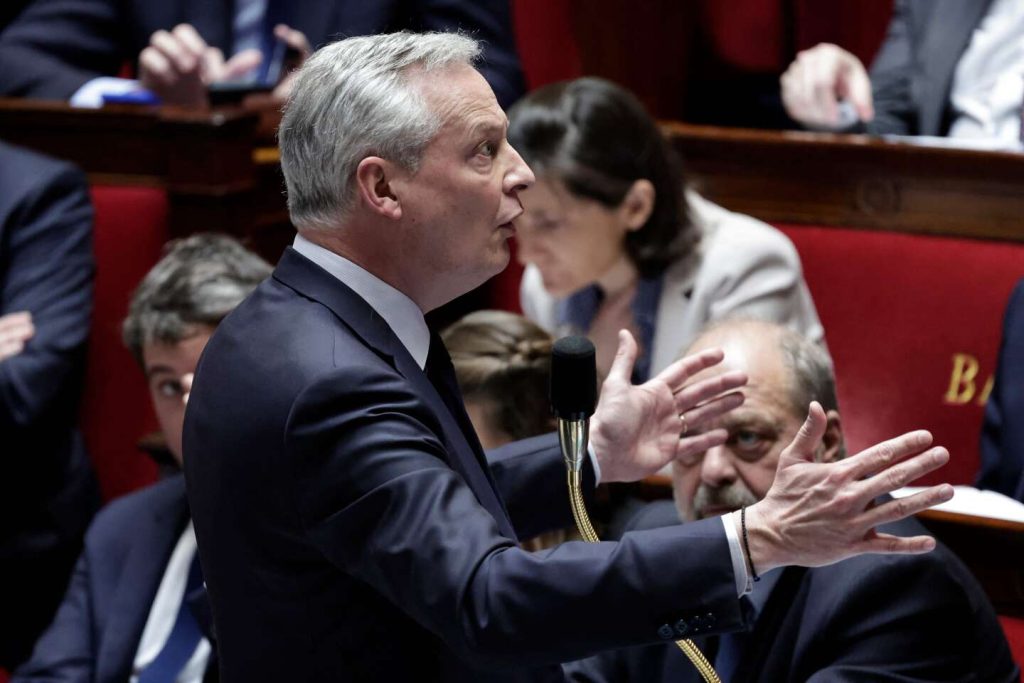The French government has revised its deficit forecast to 5.1% of the GDP for 2024, up from the expected 4.4%, in the new stability program revealed by the Ministry of Finance on April 10. This high deficit in 2024 is a result of the significant increase recorded in 2023, where it reached 5.5% instead of the predicted 4.9%. This year, an additional 10 billion euros will need to be found on top of the already saved 10 billion euros, according to Bercy. The government anticipates a growth of 1.4% in 2025, 1.7% in 2026, and 1.8% in 2027.
In February, to urgently address the situation, Minister of Economy and Finance Bruno Le Maire announced 10 billion euros in savings in the state budget for this year, which was the maximum that could be allocated without having to go through a corrective budget law in Parliament. However, there are discussions about implementing such a corrective budget law, which has caused tension between President Emmanuel Macron and Prime Minister Gabriel Attal, as they are not in favor of this approach.
For 2025, the government has already announced 20 billion euros in savings across all three areas (State, Social Security, local authorities). However, local authorities seem reluctant and have stated that they have already made significant contributions. The government is adamant about not increasing taxes to cover the deficit, claiming that tax stability allows businesses to invest, create jobs, and boost the French economy. Despite this, there are discussions about a parliamentary “task force” to propose measures to tax “rents”.
To reduce the deficit ratio, the government is relying on a combination of savings, taxing rents, and hoping for a strong increase in the GDP in the coming years. Bruno Le Maire has predicted a strong economic boost in 2025 and 2026, and Bercy forecasts a growth of 1.7% in 2025 and 2026, and 1.8% in 2027. The stability program will be presented in a council of ministers on April 17, and debated in Parliament on April 29 and 30. Despite the government’s efforts, some opposition parties accuse them of delivering misleading messages and having a double standard when it comes to addressing the deficit.


